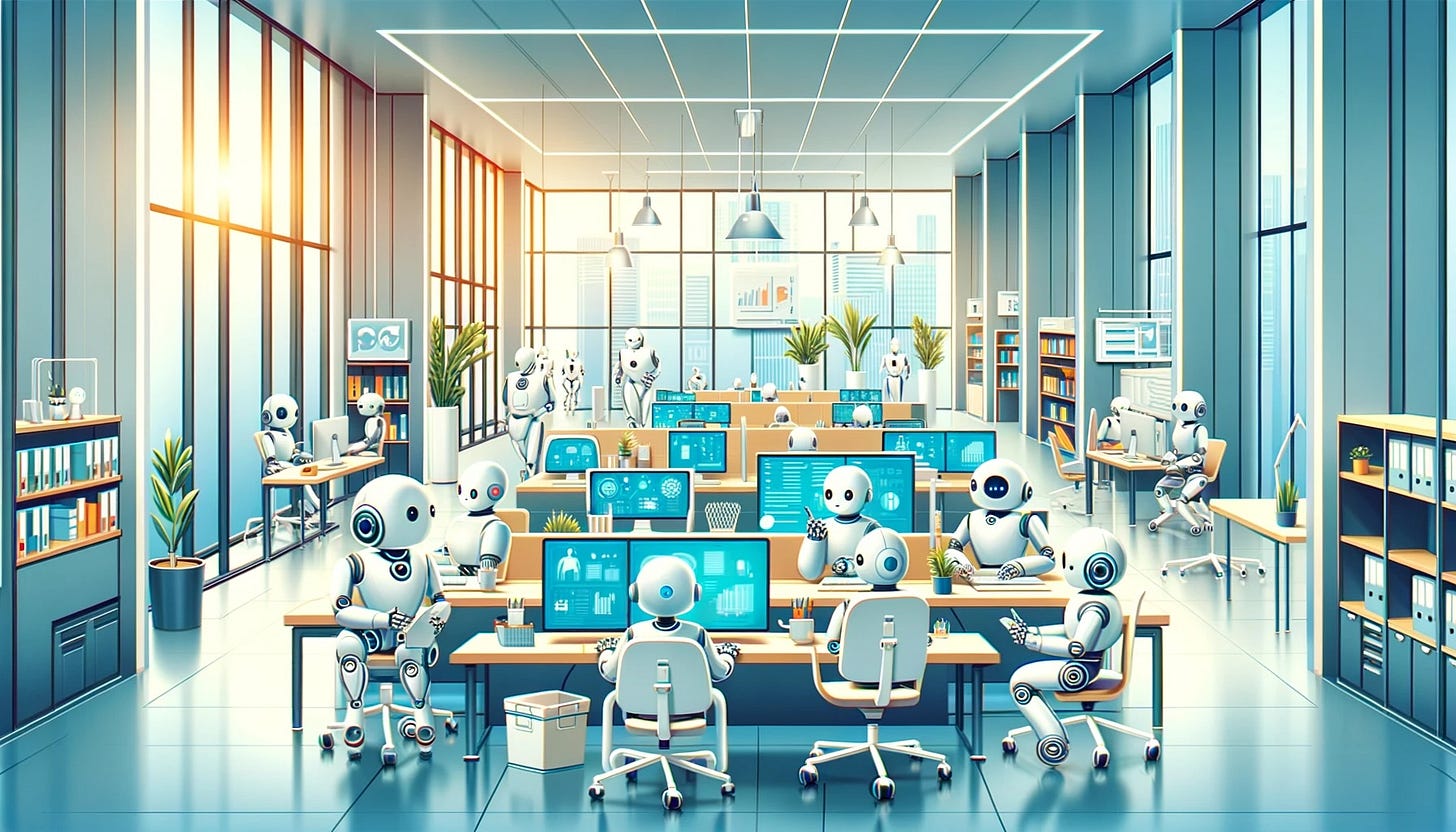Will AI take my job?
Yes. But it’s a wrong question.
Many people compare AI to previous machines and technologies in history, such as radio and computers, and then conclude that although AI will displace some jobs, it will also generate new ones. However, AI is fundamentally different from any previous technology.
Radio can’t create content; humans create content and transmit it using radio. Computers can’t make decisions; humans make decisions and use computers to execute them. But AI can create new ideas and make decisions autonomously. It’s a false analogy to compare AI to earlier machines, and one can only draw false conclusions from a false analogy.
Humans learn skills and perform jobs using their intelligence. If AI reaches human-level intelligence, there’s no reason it couldn’t replace any job that humans can do. AI also wouldn’t create maintenance jobs for humans. Have you ever seen a panda doctor or a monkey nurse in a hospital? Probably not, because humans take care of humans. With human-level intelligence, AI can also take care of itself.
Historian Yuval Harari argued that the term “AI” could also stand for “Alien Intelligence” because it’s very powerful, and we don’t fully understand how it works. Mustafa Suleyman, CEO of Microsoft AI and co-founder of DeepMind, referred to AI as “another species” in his TED talk. “Alien” and “a species” are better analogies for AI. If you think of AI as another species with human-level intelligence, you’ll have a clearer picture of the risks that AI can bring.
AI is “horizontal.” It won’t just target specific jobs—no job is safe from AI. Even if AI doesn’t reach human-level intelligence and only increases our productivity, we’ll still need far fewer jobs in every industry than we do now. You may still have a job, but you won’t feel secure living in a society where 60% of people are jobless. That’s why the question “Will AI take my job?” is misleading; it causes you to focus on individual solutions and gives the illusion that some jobs are safer than others. A better question is, “Will AI take all jobs?” This would lead us to seek a societal solution, which is the only solution.
In 2017, The New York Times published a report titled "The Robots Are Coming, and Sweden Is Fine"(paywalled), discussing how people in Sweden view robots and other forms of automation. People in Sweden aren’t afraid of advanced technology—not because they have mastered it or are smarter than people in other countries, but because Sweden has a generous social welfare system that protects people when they’re jobless. Sweden also supports workers in acquiring new skills if new technology creates new jobs.
Facing the joblessness that AI can bring, we need a society with a strong safety net and solidarity, like Sweden. In such a society, people won’t feel desperate or lose their dignity immediately if AI takes their job. They will have time to learn how to use AI if that’s an option. This kind of society could also implement Universal Basic Income (UBI) for everyone so that people can simply enjoy their lives while AI works for them.
In addition to the welfare system, we should also start to rethink the meaning of a job. In modern society, we attach a lot of significance to a job, such as social status, dignity, and a sense of purpose. Being jobless is often seen not just as poor but also as useless and despised. However, at the same time most people don’t enjoy their work and would quit immediately if financially secure. If we stop attaching these meanings to a job, people might welcome “losing” their jobs if they can still receive income from society.
Ever since machines were invented, many have dreamed that one day machines would do all the work, freeing people from labor and providing more leisure time for everyone, not just the elites, to learn about philosophy and art. Robert Maynard Hutchins, the American educational philosopher, once wrote, “The substitution of machines for slaves gives us an opportunity to build a civilization as glorious as that of the Greeks, and far more lasting because far more just.” Unfortunately, machines have not lived up to this promise. But with AI, we might finally be freed from mundane and boring work—if we handle AI with the care and wisdom it demands.
Yes, AI may take all the jobs, but it could be a desirable future.


